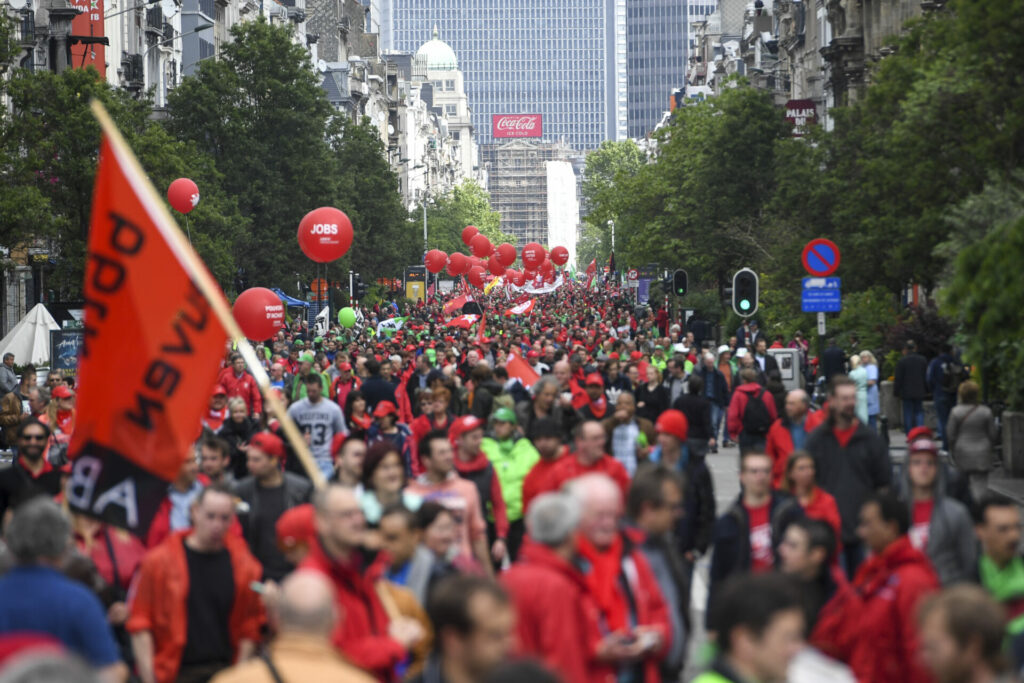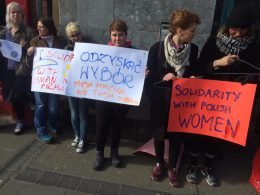The following leaflet that the members of LSP/PSL distributed on the picket lines and actions was well received with a lot of discussion on the need for nationalisation of the entire energy sector, but also on how to move forward to build a relationship of forces.
In our leaflet, we explained that there was a lot of hesitation before this strike and that some union leaders did not throw their full weight into mobilisation. There is still work to be done to generalise our protest. We need a programme and action plan that outlines how to go on the offensive to win.
Launching an action plan with general and regional strikes from a major national demonstration could provide the impetus for this. This preparation is best done as soon as possible, with assemblies of all workers in the workplaces, and activist meetings across different sectors and regions to evaluate this strike and to discuss and vote on the next steps.
Our members sold 140 copies of our monthly paper at the dozens of pickets they visited. Below is a translation of the leaflet we distributed.
Build the struggle with a plan of escalating actions
— Nationalise the energy sector!
— Raise all wages: 2 euros an hour more for everyone, minimum wages of 15 euros an hour!
When things were bad like during the pandemic, working people kept everything running. When things got a bit better, late last year, the bosses were the first to fill their pockets. Now, what do workers get? Soaring inflation and skyrocketing energy prices. We are supposed to make do with peanuts!
On 11 October, a mother and daughter were killed in Wilrijk, Antwerp, by Carbon Monoxide poisoning. They were trying to heat their house by lighting a barbecue inside. The fire brigade is fearful of watching the consequences of despair this winter. If we do not organise the anger with an ambitious battle plan around working class actions, tragedies will follow. If discontent is bottled up at home, other forces, including the far right, could use it to reinforce division and misery. Delegation of young members of LSP visiting picket at Eastman chemical company
Delegation of young members of LSP visiting picket at Eastman chemical company
Nevertheless, there are union leaders who believe the government can be reasoned with. Thus they do not properly mobilise for struggle. The politicians, bosses and media ruthlessly exploit this. However, the dramatic situation is forcing the labour movement to take action against high energy prices, for higher wages and more resources for services. According to the National Bank of Belgium (NBB), the profit margin of non-financial companies reached a new record high in the second quarter: 45.2%. So there are resources to raise all wages!
In the past few weeks alone, there were strikes at the railways, French-speaking education, the Dutch-speaking public television and radio VRT and security personnel at Charleroi airport. Among federal civil servants, there is an indefinite strike notice from 9 November. There are protests by staff in Flemish childcare. Social workers in Brussels are mobilising against the lack of resources. Brussels firefighters held a general assembly to announce sector-specific actions following the general strike on 9 November. Everywhere, the workload is unsustainable. Governments have rejected staff demands for more resources in these sectors. There is even a reduction in the growth package (the percentage to increase the means) for healthcare! The temporary handouts to the bosses on the contributions they pay as part of our wages, as recently decided by the government for the first half of 2023 (a handout of €1 billion) will add to the shortages.
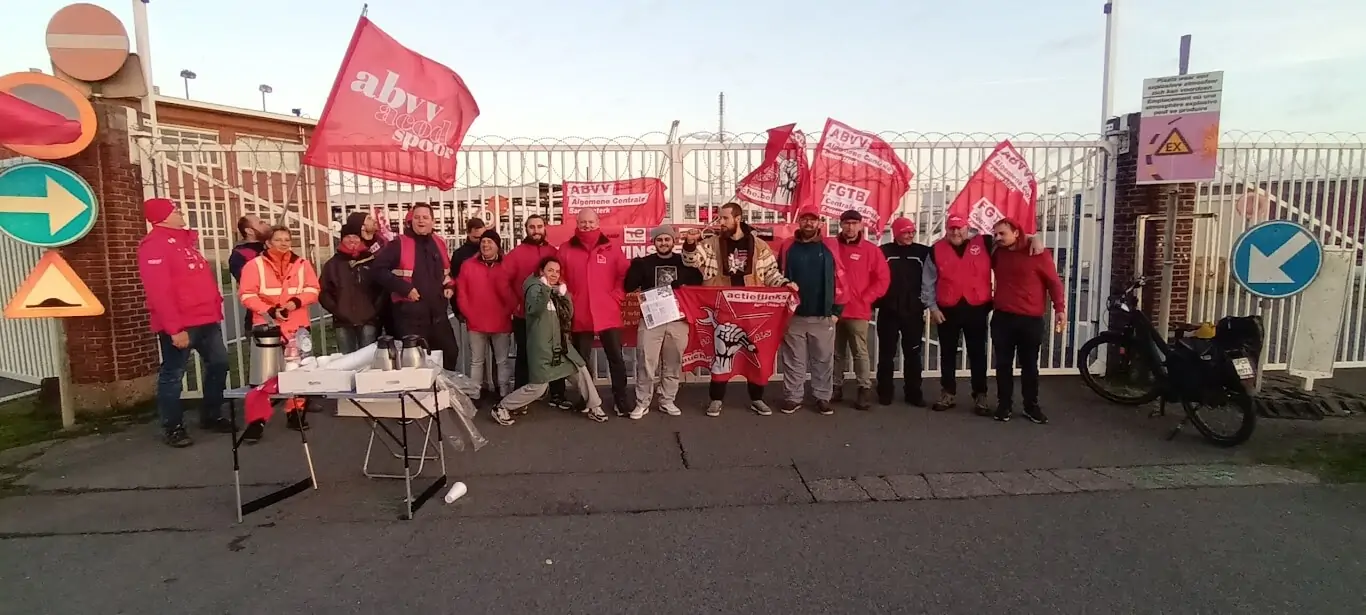
Picket at TotalEnergies refinery in Antwerp
In the aftermath of actions of the joint front of union federations on 20 October in front of energy companies, the bus drivers of the TEC in Charleroi decided to go on a spontaneous strike to continue the fight against high energy prices. The strikers then went to the waste collection company TIBI to engage the drivers in their actions.
We have no other choice but to struggle
We know that weakness invites aggression. Governments and bosses will interpret any hesitancy on the part of the unions as a licence for an avalanche of misery: an attack on the automatic indexation of wages (also know as a ‘sliding scale’, w to increasing prices) like the 1993 Global Plan that introduced the ‘health indexation’, zero margin wages in the next national collective agreements (meaning no pay increases on top of the automatic indexation) and new cuts in social security.
Fear and anger are not fundamentally different in Flanders, Wallonia and Brussels. If there is a difference in dynamics, it is partly due to the political landscape and the accompanying public debate. The 2014 action plan (with a national demonstration of 150.000 followed by regional strikes building up towards a strong national general strike) showed how the labour movement can turn the public debate around. Only the lack of a second even bigger action plan saved the government at that time. The situation is equally serious today.
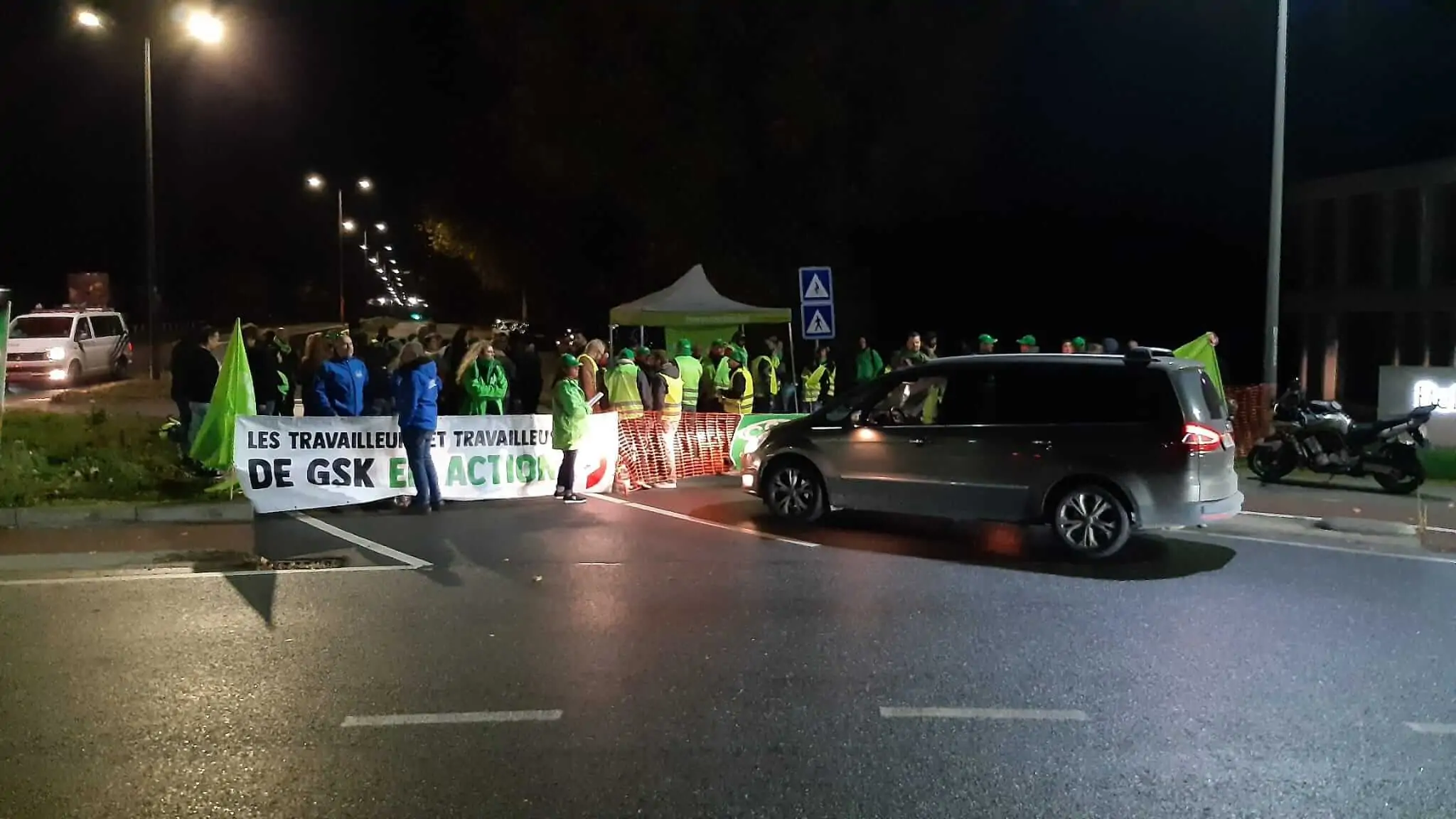
Picket at GSK, pharmaceutical company in Wavre
We must not allow ourselves to be divided: where the movement is already stronger, this position must be used to pull others along. Therein also lies the importance of demands such as a general wage increase of 2 euros per hour (or 330 euros per month) and an increase in the minimum wage to 15 euros per hour. That way, we can unite the whole labour movement around a clear goal and ensure that the sectors where the unions are less strong today are not left behind.

Picket-line in front of Radison hotel in Brussels
The bosses say they can’t afford it. Let them open their books! Then workers can check whether it is true or whether shareholders and managers have simply plundered the reserves. A new international restructuring threatens jobs at Pepsico in Zaventem, a company that made $3 billion in profits in the last quarter alone! When threatened with mass layoffs or closure: occupy, expropriate and nationalise under workers’ control and management to save jobs and meet community needs.
This is only a beginning, keep up the struggle!
This first general strike should be evaluated at general assemblies and democratic meetings that bring together workers from different sectors. This is an ideal time to discuss the strengths but also the weaknesses of the strike, to refine the platform with sector-specific demands, and to discuss and democratically vote on plans to continue to build the movement.
There must be a new incremental and constructive plan of action. If we want to convince the whole of society and get them behind the labour movement, we need a real show of power. The demonstration on 6 November 2014 (150,000 people) was the biggest union demonstration since 1986. No one then doubted who could give a lead to society. A new mass demonstration could also bring together young people, pensioners, the unemployed and even the self-employed and small businesses (shopkeepers in Liège and Brussels are already calling for solidarity with the 9 November strike) around the labour movement and help build momentum for new national strike days preceded by provincial strikes.
We can take inspiration from the refinery strikes in France, which were renewed daily in general assemblies by the strikers themselves. The revolt against the high cost of living is not only taking place in Belgium, it is an international struggle. We can learn lessons from other countries and work towards international coordination in the fight against capitalism in crisis.
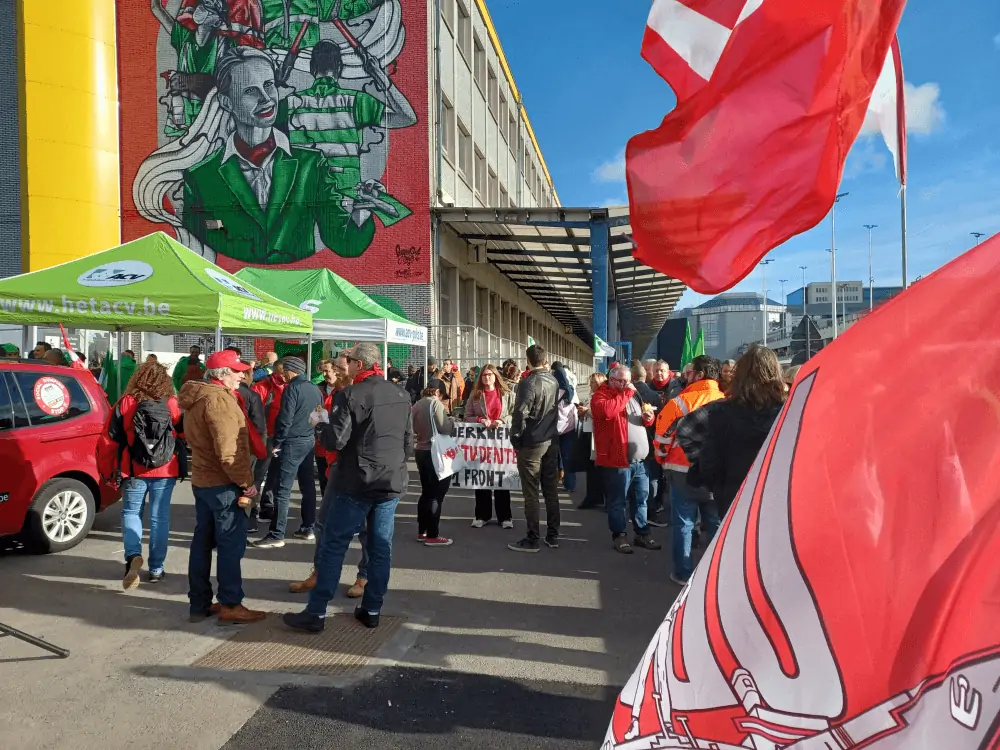
Brussels Airport
Blocking prices by nationalisation
Total has already made more than $17 billion in profits this year, but expects total European ‘excess profits tax’ to be only $1 billion. To truly control prices, the entire energy sector must be expropriated and nationalised. This demand was taken up by some trade unions. By spearheading it, we can offer a perspective to all those anxiously awaiting the next energy bill.
The demand that best meets current needs is that of the metalworkers union, MWB (Métallos Wallonie-Bruxelles) of the FGTB/ABVV federation: “Energy must be recognised as a common good of first necessity and must therefore be managed by a public monopoly that defends the interests of workers and users. We demand the nationalisation of the sector.” All unions and the left party PTB/PVDA should take such a position and make it a central focus, not a fringe demand. More limited demands can neither stop the brutal collective impoverishment nor meet the climate challenge. The nationalisation of the entire energy sector should be accompanied by the nationalisation of the entire financial sector to end speculation and to have the resources needed for healthcare, childcare, education, and public transport.
This would free up the necessary resources for massive investments in green energy for households and small traders. The market does not work. We need rational and ecological planning of the economy. To avoid bureaucratic mismanagement, this must be done under the leadership and control of the workers themselves. This implies establishing committees at workplaces with democratically elected representatives of the workforce, trade unions and the community as a whole (including the local community and consumers). This is what we mean by a socialist society.





